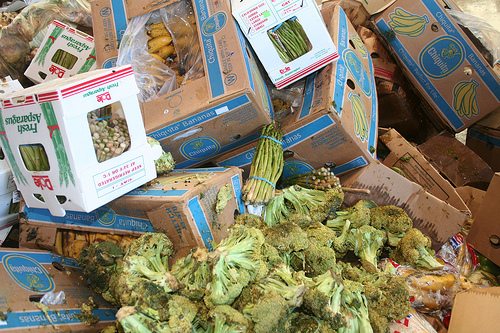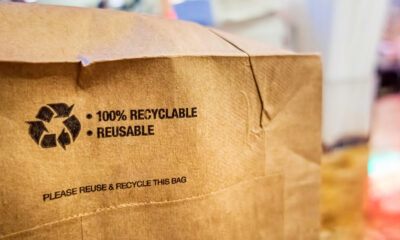

Environment
World wastes up to a third of produced food, says World Bank
As much as a third of all the food the world produces is never eaten, causing huge inefficiencies in economic, energy and natural resource use, according to a damning new report by the World Bank.
The report, published earlier this week, found that between one-fourth and one-third of the nearly 4 billion tonnes of food produced for human consumption every year is lost or wasted.
In the developed world, these losses translate to 750 to 1,500 calories per person, per day.
Even in regions badly affected by starvation and undernourishment, such as Africa and South Asia, the losses can add up to between 400 to 500 calories.
“The amount of food wasted and lost globally is shameful,” said Jim Yong Kim, president of the World Bank.
“Millions of people around the world go to bed hungry every night, and yet millions of tonnes of food end up in trash cans or spoiled on the way to market.”
Overall, the report estimates that 56% of total food loss and waste occurs in developed countries, while the remaining 44% occurs in the developing world.
The report notes that in developing countries, waste tends to occur mostly during the earlier stages of the food value chain, as an unintentional result of technical limitations or poor infrastructure.
In developed nations however, food waste typically takes place at the retail and consumption stages of the chain, when food is deliberately thrown away.
In the UK, the report finds that an average family of four wastes food worth $1,100 (£656) per year.
The World Bank suggests that this kind of waste is encouraged by supermarkets’ promotional offers that encourage shoppers to buy more than they need, or by overly conservative “use by” labels.
The report laments that all kinds of food waste cause further waste of economic, energy and natural resources.
For example, the large quantities of water needed to grow apples or irrigate rice are also wasted if the end product is thrown away. The efforts made to cultivate and transport wasted food products also represent an unnecessary generation of carbon emissions.
The report concludes that potential solutions include increasing investments in transport and storage infrastructure in the developing world, and changing consumer and commercial behaviour in the developed world.
One initiative working to do just that in the UK is the Love Food Hate Waste campaign, co-ordinated by the Waste and Resources Action Programme.
Speaking to Blue & Green Tomorrow in 2013, Emma Marsh, head of the campaign, said, “All of us – individuals, businesses, governments and community groups – can play a role in tackling food waste, and we have the tools and insights to make this happen.
“We have a central role […] as individuals, to reduce the amount of food we throw away.
“Whether that’s through better planning so that we only buy what we need, understanding our date labels and being in control of them, cooking just the right amount, storing food in the best way possible to keep it fresher for longer and making the most of leftovers and forgotten foods – a number of small acts makes a big difference.”
Further reading:
Supermarkets commit to reporting food waste figures
Resource efficient food in a changing, growing world
Consumers have ‘immense power’ to make food sustainable
Long-term approach needed for sustainable agriculture, says Rabobank
Tesco to put ‘ugly’ fruit and veg on special offer to cut waste


 Features11 months ago
Features11 months agoEco-Friendly Cryptocurrencies: Sustainable Investment Choices

 Energy11 months ago
Energy11 months agoThe Growing Role of Solar Panels in Ireland’s Energy Future

 Energy10 months ago
Energy10 months agoGrowth of Solar Power in Dublin: A Sustainable Revolution

 Energy10 months ago
Energy10 months agoRenewable Energy Adoption Can Combat Climate Change




























